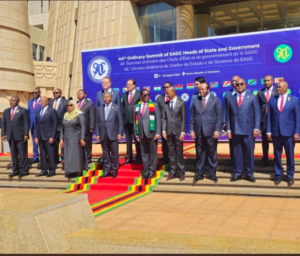The ‘Patriotic Bill’: A Tool for Suppression and Incarceration by ZANU PF Regime?
The alleged defence of patriotism, a virtue lauded in any nation, has long been used to facilitate less than noble causes. In Zimbabwe, the so-called ‘Patriotic Bill’ is a notable example of this incongruity, being purportedly used as an instrument of suppression and a means to imprison opponents by the ruling ZANU PF regime.
At first glance, the Patriotic Bill seems innocuous, even beneficial – a piece of legislation aimed at promoting love for the country, and criminalising actions deemed harmful to national interests. However, beneath this veneer of patriotism lies a sinister application that is allegedly being used to maintain a hold over the nation.
The crux of the controversy surrounding the Patriotic Bill lies in its interpretation. While the bill proclaims to guard the nation against acts of treachery, critics argue that it is being weaponised by the ZANU PF regime to stifle dissenting voices. The very idea of defining ‘unpatriotic acts’ within the legislation is contentious, given the potential for misuse by those in power.
The power dynamics in Zimbabwe under the ZANU PF regime have raised eyebrows on more than one occasion. This bill, according to critics, could provide a legal justification for punishing opposition members and limiting their capacity to challenge the status quo.
Detractors of the Patriotic Bill point to the past actions of the ZANU PF regime as proof of their intentions. They claim that a long-standing trend of suppressing opposition forces and civil society organisations through laws and regulations, clearly manifests in the form of this new bill.
The term ‘treason’ is a particular area of concern in the legislation. Broad and loosely defined, it has been interpreted to include any actions or statements that can be deemed as ‘against the interests of the state.’ The ambiguity of this clause could allow for the imprisonment of opposition members on dubious grounds, thereby further entrenching the regime’s power.
Despite assurances from the ruling party that the bill is in the best interest of the nation, skeptics remain unconvinced. They argue that the law could be utilised to silence critics, both domestic and international, who pose a threat to the ruling party’s hegemony. This has stirred fears that the ZANU PF regime could use the Patriotic Bill to curtail freedom of speech and effectively criminalise any opposition.
Furthermore, the bill poses a threat to media freedom. Journalists could face dire consequences for publishing content that contradicts the ruling party’s narrative or criticises the government’s actions, thereby undermining the principle of a free press.
In conclusion, while the Patriotic Bill may be touted as a means of defending national interests, its potential as a tool for suppression cannot be overlooked. The international community must closely monitor its implementation to safeguard Zimbabweans’ rights to freedom of speech, political participation, and a free press.
Ultimately, the ZANU PF regime’s use of the so-called Patriotic Bill is a stark reminder of how legislation can be manipulated to uphold a single party’s interests, potentially compromising the democratic fabric of a nation in the process.




